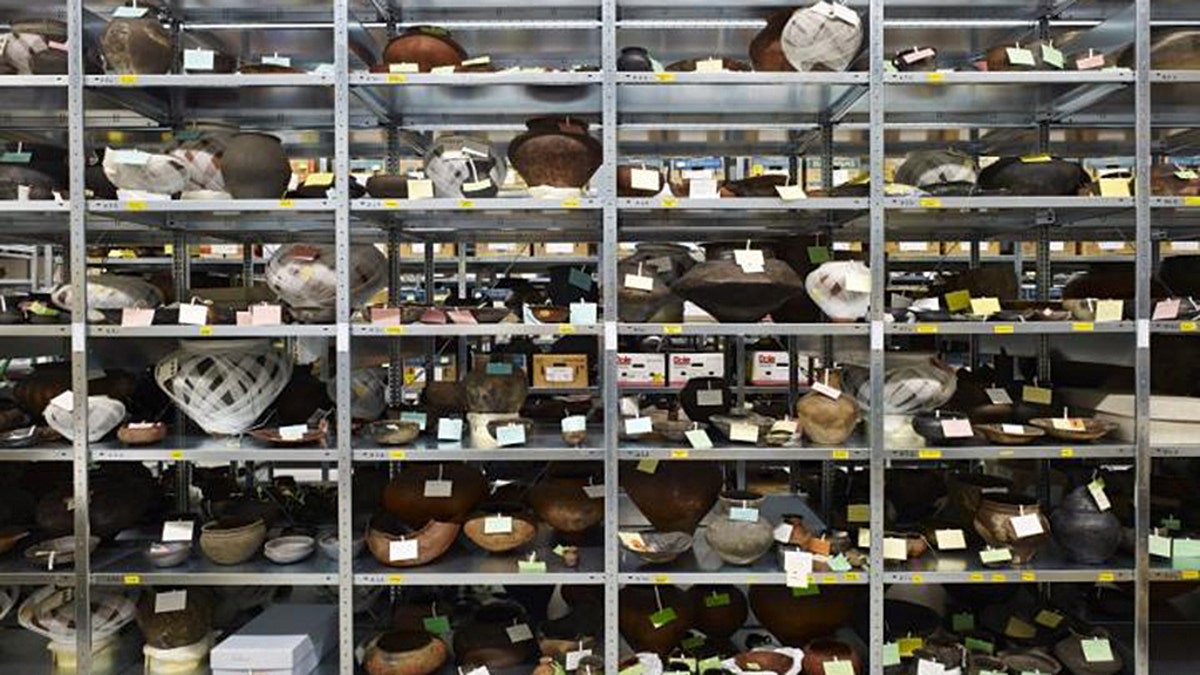Fox News Flash top headlines for Oct. 24
Fox News Flash top headlines for Oct. 24 are here. Check out what's clicking on Foxnews.com
Experts have evidence that Iron Age Celts drank Mediterranean wine as far back as 2,700 years ago, according to a new study.
The research looks at newly found evidence of organic wine on 133 different ceramics from the Heuneburg settlement in Germany.
"We describe a new facet of this process by studying the transformation of consumption practices, especially drinking habits, brought about by intercultural encounters from the late 7th to the 5th century BC through the analysis of organic remains in 133 ceramic vessels found at the Heuneburg using Organic Residue Analysis (ORA)," researchers wrote in the study's abstract.

Heuneburg early celts from all social classes may have consumed mediterranean wine in local ceramics. (Credit: Victor S. Brigola)
IRON AGE CELTIC WOMAN BURIED IN 'TREE COFFIN'
They continued: "During the Ha D1 phase, fermented beverages, including Mediterranean grape wine, were identified in and appear to have been consumed from local handmade ceramics. The latter were recovered from different status-related contexts within the Heuneburg, suggesting an early and well-established trade/exchange system of this Mediterranean product."
The wine residue was found in Celtic vessels, which likely belonged to people from a lower class, as well as vessels imported from the Mediterranean, likely belonging to the elite, researchers said in a statement accompanying the study.
North of the Alps, Heuneburg was considered an important site for early urbanization during the Early Iron Age.
"By integrating archaeological and organic residue analyses we are able to shed new light on Early Celtic consumption practices and provide important initial insights into their complex transformation over time, which was certainly influenced in part by the dynamics of intercultural encounter with the Mediterranean," the researchers wrote in the study's conclusion.
The study has been published in PLOS One.
Researchers are still unearthing secrets about the Celts. Earlier this year, researchers found more than 100 fragmented human skulls buried in an open area of Le Cailar, France — a 2,500-year-old town on the Rhone River.
In July, experts discovered the grave of a Celtic female who was buried in approximately 200 B.C. with a surprising find — she was buried in a tree coffin and adorned with precious jewelry.
CLICK HERE TO GET THE FOX NEWS APP
Fox News' Walt Bonner contributed to this story.

